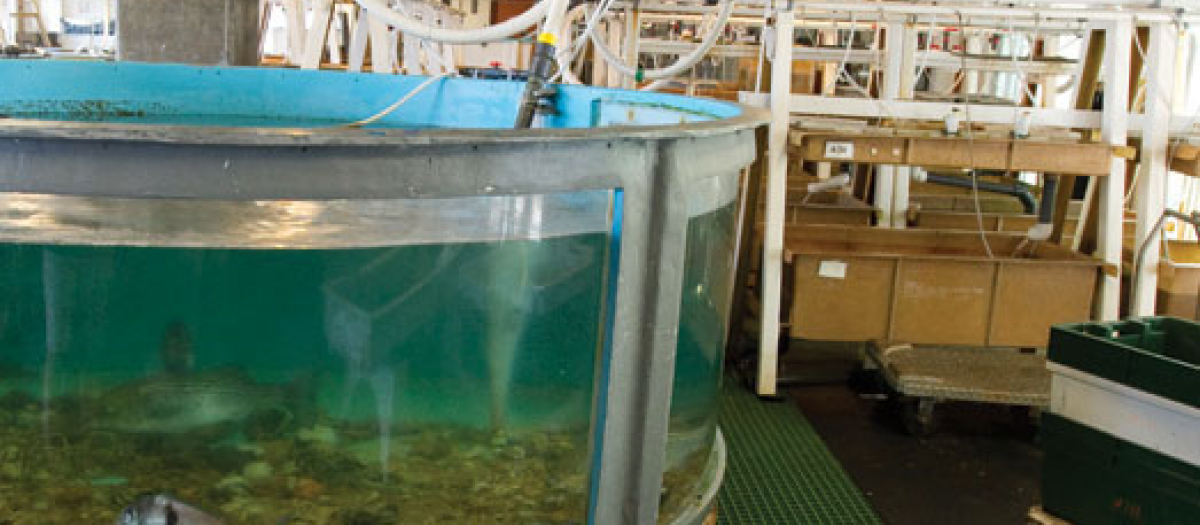MRC 316
7 MBL Street
Woods Hole, MA 02543
Technical contact:
David Remsen
508-289-7477
The Marine Resources Center was designed for versatility and efficiency to maximize the health and longevity of the marine organisms that are the lifeblood of research at the MBL. Keeping aquatic organisms alive and available to scientists year-round is crucial to research at the MBL and to MBL’s convening power.
To ensure reliability and to safeguard organisms being cultured or maintained in the MRC, all incoming seawater supply lines, filtration systems, and treated-water heat exchangers are redundant. All pumps, temperature sensors, and the ozone distribution system are alarmed and under computer control. Water temperatures are continuously monitored and adjusted every 4 seconds by computer to ensure a temperature stability of 0.5oC. The system is also remotely accessible and is backed up by staff on call 24 hours a day. Any failure in the system is immediately detected and, because of the system’s redundancies, is rapidly corrected to ensure no major losses of organisms. The entire system is supported by routine security checks as well as an emergency 500-kW generator.
The MRC’s ground floor houses a variety of healthy organisms in seawater tanks, as well as a procedures room for handling, examining, and preparing marine organisms. A large portion of the floor space is available to scientists conducting individual research projects.
The second floor contains offices, a classroom, as well as dry and wet laboratories. In-house veterinary services are provided by the MBL veterinarian. The floor includes a research holding room for injured or diseased organisms, a necropsy room, histology and microbiology/parasitology labs, and a water quality/chemistry laboratory.
The third floor contains the mechanical equipment that is crucial to the life support systems of the MRC plus additional laboratory space and offices.
The Marine Resources Center and its staff enable MBL Scientists to:
- conduct research on marine organisms, in projects that include sensory and behavioral neurobiology, environmental toxicology, reproductive biology, regenerative biology, and embryology;
- have access to field-collected marine organisms for use in research and education;
- conduct basic research into the causes, treatment, and prevention of diseases affecting marine animals, as models for human conditions; and
- develop educational programs to expand the use of marine laboratory organisms within the scientific research and educational communities.
